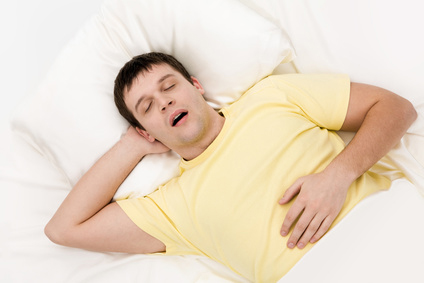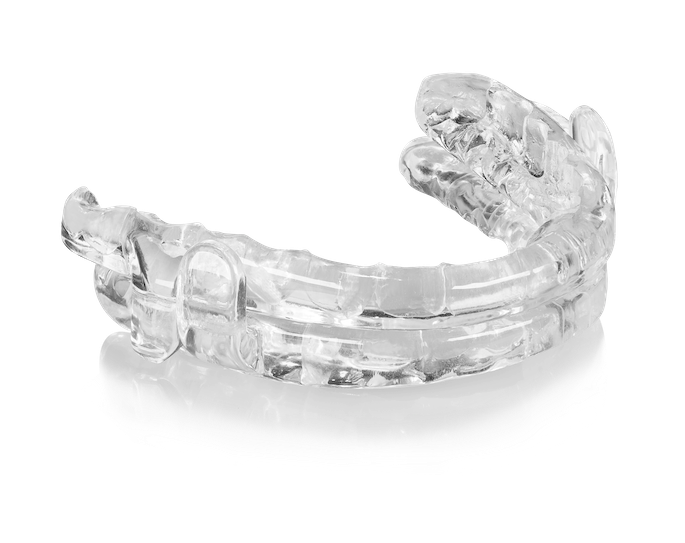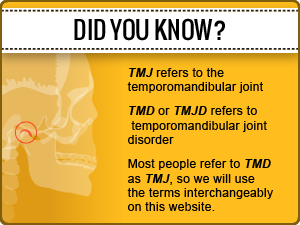What Is Sleep Apnea?
Does your loved one snore, stop breathing and gasp for breath?Trouble breathing while asleep? It could be sleep apnea
 Snoring is the most common warning sign of sleep apnea.
Snoring is the most common warning sign of sleep apnea.
Do you find it difficult to breathe when you sleep or find yourself snoring far too often? You could be suffering from something called sleep apnea. Many patients are
Many patients are unaware of their sleep apnea, even when it is very severe or life-threatening and concerned family or friends inform them of the problems. If you have loud disruptive snoring there is an excellent chance it is a warning sign. Listen to the warning before it’s too late!
Sleep apnea is a sleep disorder which occurs when breathing stops and starts repeatedly. You could have sleep apnea if you know you snore loudly and you still feel tired right through the day even if you thought you had enough sleep. Sleep apnea can happen when your throat muscles relax at the wrong time or when your brain fails to send the correct signals to the muscles that are responsible for controlling breathing.
These are some of the common sleep apnea symptoms:
- Sleepy all day
- Loud snoring
- Short lapses in breathing while asleep
- Sleep a lot but still tired
- Suddenly waking up accompanied by a shortness of breath or heart palpitations
- High Blood Pressure or Hypertension
- Waking up with a dry mouth or a sore throat
- Headache, especially morning headache
- Insomnia, waking during the night and not being able to return to sleep.
- Concentration problems
- Motor Vehicle Accidents or near misses
- Marital Discord
What are some of the most common sleep apnea causes?
Apnea comes from the Greek meaning “want of breath”
The most common type of sleep apnea is called obstructive sleep apnea (OSA). This is when the muscles in the back of your throat relax and block your air flow. This is actually an active process, when we breathe in we create a vacuum that sucks our airway shut, usually at the base of the tongue.When this happens, not enough oxygen gets into your blood. Your body reacts very quickly and you normally find yourself waking up suddenly with a choking or snorting noise. It tends to happen time and again through the night, so you just can’t get enough sleep.
Sleep Apnea is the most severe form of sleep disordered breathing and is a total blockage of the airway. Hypopnea is an incomplete blockage of the airway that still causes oxygen to drop significantly but may just have snoring with total stoppage of breathing. Upper airway resistance syndrome (UARS), also called Respiratory Related Arousals (RERA) is a partial blockage of the airway and is usually found in younger healthier and thinner individuals, especially women. It can cause all the same symptoms as Sleep Apnea and is one of the major cause of Fibromyalgia.
People with certain characteristics are more likely to experience sleep apnea. For instance, if you are overweight, a male or a smoker you are more likely to get sleep apnea. There are other physical reasons for sleep apnea, too. You might be more likely to get sleep apnea if you have a thick neck, a receding chin or enlarged adenoids or tonsils. Some allergies can cause sleep apnea too. Many of the patients do not fit this clinical picture but still experience sleep apnea. This is due to the configuration of their upper and lower jaws and tongue.
The problem could be dental related
The National Heart, Lung and Blood Institute of the NIH published a report on “The cardiovascular and sleep related consequences of Temporomandibular Disorders”. They have recognized that the same underlying mechanisms are involved in snoring, sleep apnea and TMJ disorders.
There are ways to relieve sleep apnea and it may be surprising to learn that dental solutions could help. You don’t have to suffer needlessly as these days there are devices available which have been shown to be very beneficial for sleep apnea sufferers.
Some of the most commonly used devices used by dentists look a bit like a sports mouth guard. They gently and comfortably move the lower jaw forwards and downwards and help to keep your airways open. These are called Mandibular Advancement Devices (MAD) and there are over 100 types available.
One of these devices is the TAP 1 appliance that is one the most effective devices available. It consists of an upper and lower appliance connected with a hook and a bar. There is a handle that is turned to advance the lower jaw. This handle acts as a volume control for your bed partner. who can turn off your snoring and increase your airway. The Somnodent appliance by Somnomed is one of the most comfortable appliances available.
A second device that may be used is a tongue retainer. This is a splint which holds the tongue in the right position and works to ensure the airway is kept open. Overall, dental solutions not only improve oral and dental health for sleep apnea sufferers, but improve sleep patterns and reduce snoring, too.

Prosomnus Appliance

Could your medical solution be a Dental Appliance right for you? Start living a better life now.
If you think you suffer from sleep apnea and have tried ways of relieving it without much success, then it may be time to consider a dental solution to this dangerous medical problem.
We will need to examine your mouth and throat properly and may be able to give useful recommendations about what can be done to help you relieve your symptoms. Oral appliances are a first line treatment for mild to moderate sleep apnea. CPAP is still considered the first choice for severe sleep apnea but oral appliances are considered an alternative to CPAP for patients desiring a more comfortable treatment or for patients who cannot tolerate CPAP.
Sleep disorders are often associated with other TMJ and orofacial pain disorders. Differential diagnosis of sleep and orofacial pain disorders is essential to health.


0 Comments